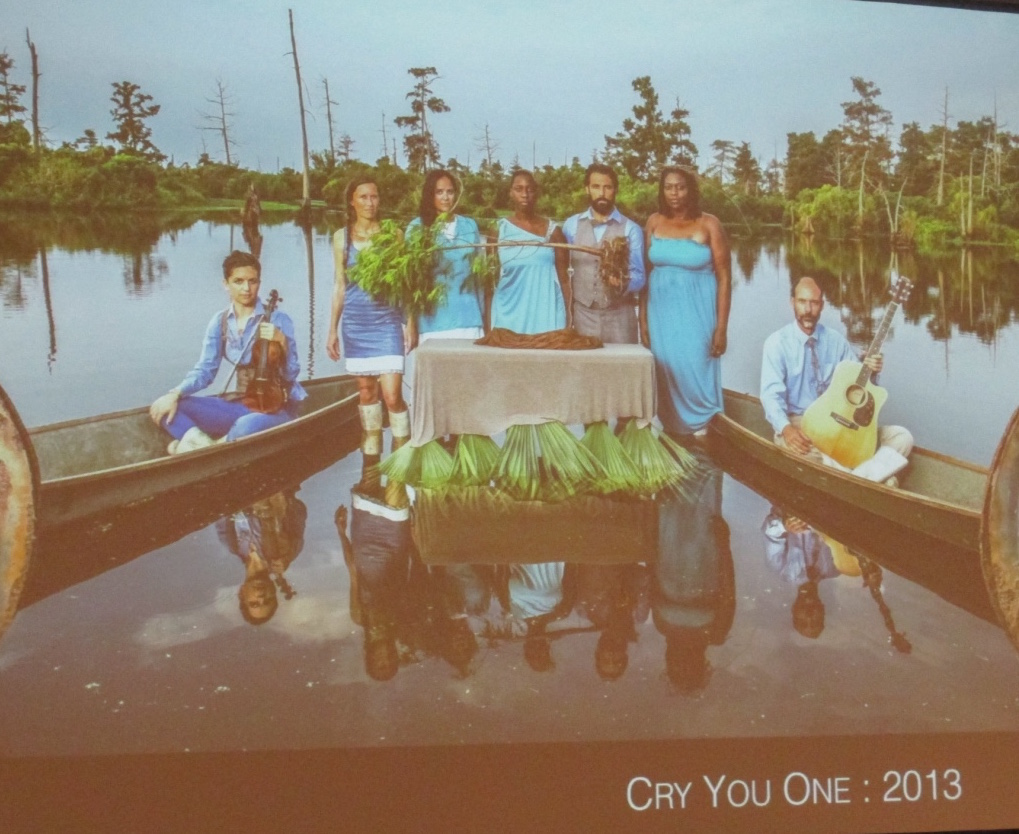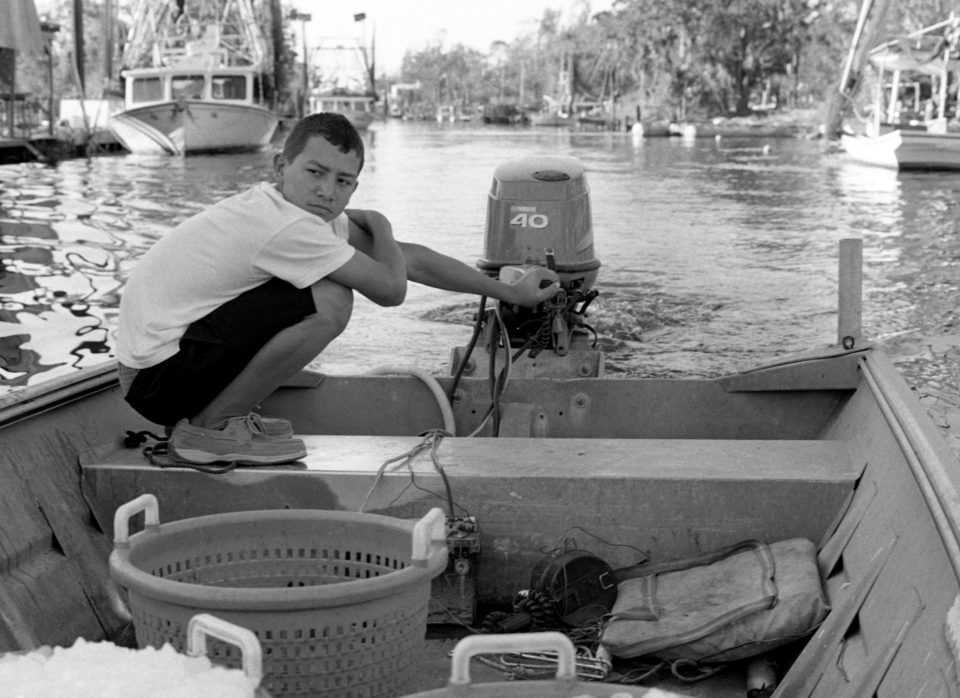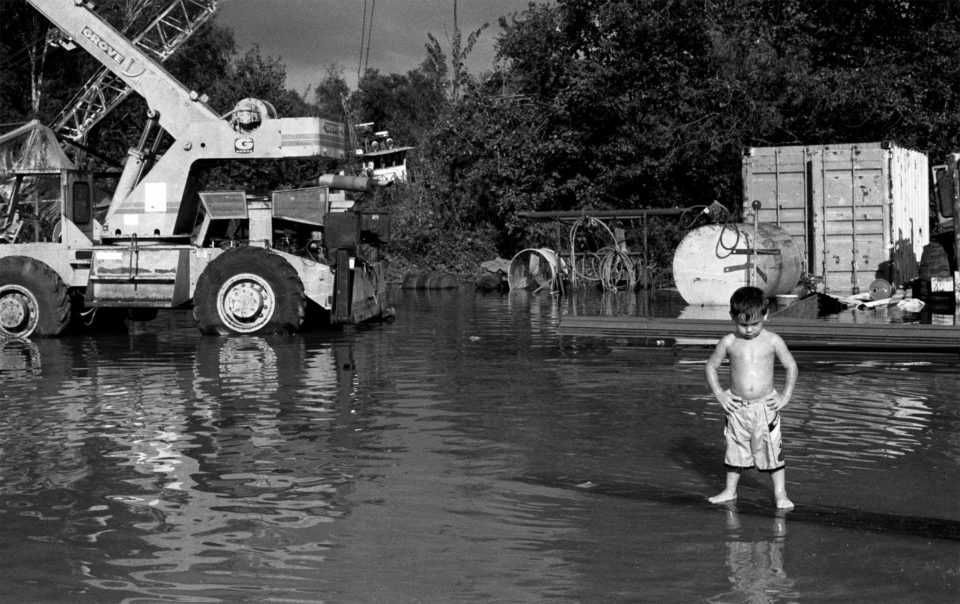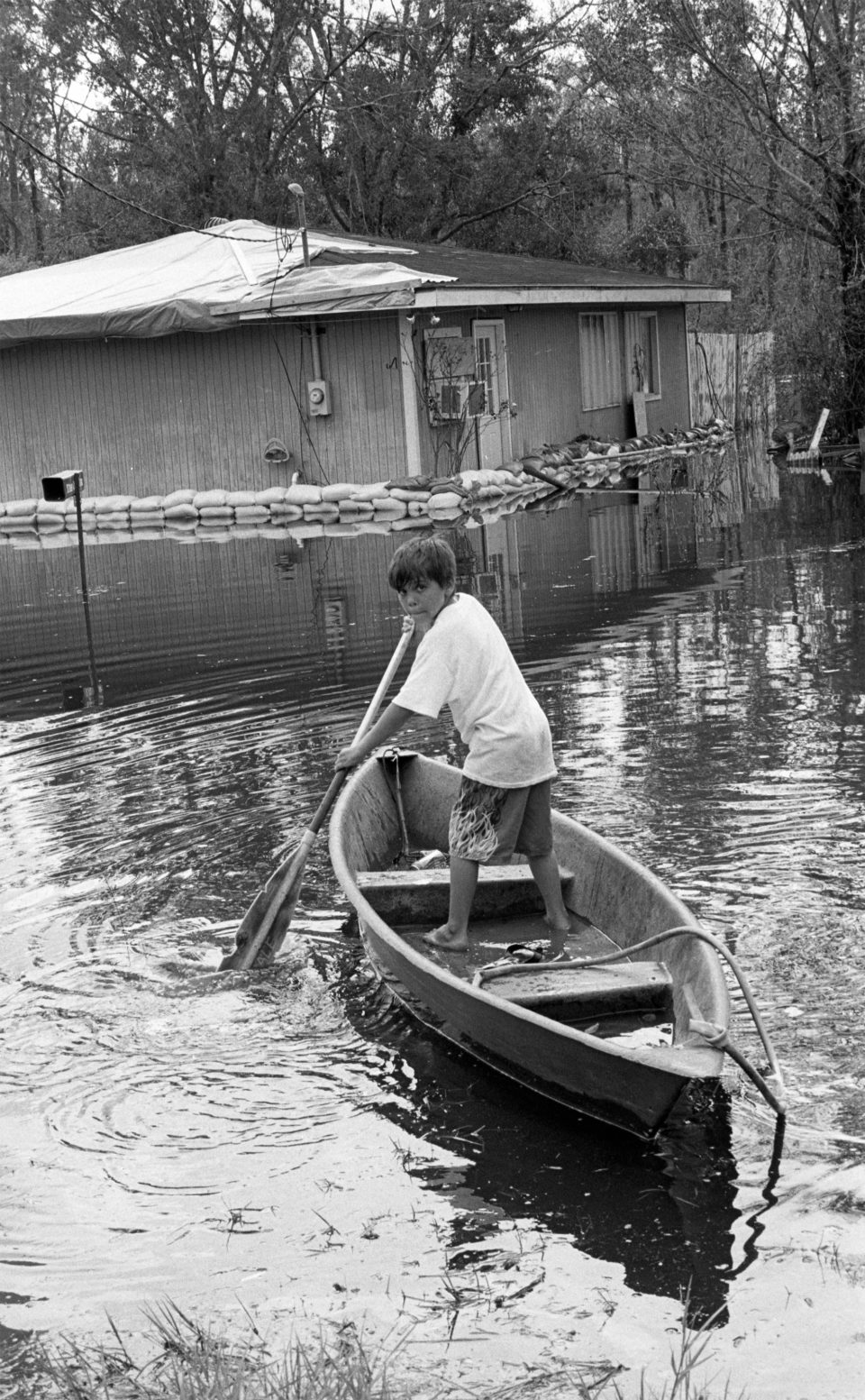
Photographer and filmmaker Monique Verdin was among those photographed in 2013 for performance and storytelling platform ‘Cry You One’ (Photo: Melisa Cardona)
Family photographs taken over two decades in Terrebonne, LaFouche and St. Bernard Parishes by Monique Verdin are exhibited until Feb. 25 at the The Historic New Orleans Collection as part of Prospect. 4. A member of the United Houma Nation Tribal Council, Verdin has witnessed the destruction of bayous as a result of dredging 10,000 miles of canals and the worsening of storm surges because of diminished wetlands.
Black and white photographs include images of Verdin’s 91-year-old grandmother, Matine, and her father, Herbert, as well as members of her extended family, sitting on porches, preparing meals, plucking ducks, maneuvering boats and coping with seasonal flooding.

Bayou boat ride (Photo: Monique Verdin)
“Our Houma people have been living off these lands and waters for hundreds of years.”
While Verdin was taking family photos, she began to see a bigger, environmental story. The land where Matine had picked pecans as a girl is now open water where Monique’s cousins fish for crabs.
Verdin always loved being with her grandmother, who followed the old ways of the Houma. Matine lived by the cycles of the moon, planting her garden when it was full, cutting her hair when the moon was new and collecting rainwater for bathing. Verdin was afraid the old ways would disappear — as history has shown with colonization and land destruction — so she began recording them.
“Twenty years ago, I picked up a camera to document my Houma relatives living in the Yakne Chitto, in the heart of the Mississippi River Delta. What I’ve witnessed has been a cycle of heartbreak, from oil waste pits to hurricanes to catastrophic oil spills to rapid land loss due to sea-level rise and subsidence.
“I want to keep living on our land, but I’m inheriting a dying delta,” she says.

Balance (Photo: Monique Verdin)
Verdin spoke at Tulane University’s Woldenberg Art Center on Wednesday, Jan. 31, showing her photographs in a public program coordinated by the New Orleans Center for the Gulf South.
“I never wanted to be a political activist,” she told the audience. Verdin has traveled to Paris, protesting with hundreds of other indigenous people at the international climate talks and with thousands at Royal Dutch Shell’s annual meeting in the Netherlands. She is a member of Another Gulf is Possible Collaborative, creator of the Land Memory Bank & Seed Exchange and co-curator of Fossil Free Fest, to be held April 6-8, before New Orleans Jazz Fest.

After the storm (Photo: Monique Verdin)
“My family roots run deep in the wetlands of Southeast Louisiana,” Verdin states in My Louisiana Love, an award-winning documentary co-produced in 2012 with her friend Sharon Linezo Hong. “My intention has always been to share south Louisiana stories and the complex realities of life at the ends of the bayous.
“The more I grow to understand the heartbreak, the more I learn to appreciate this fragile ecosystem I call home and recognize it is a power point for our planet.
“We are at the epicenter here. Houma are on the frontlines of climate change.”
For more information about Prospect 4, visit https://www.prospectneworleans.org.
*Quotes were taken from Monique Verdin’s film “My Louisiana Love” as well as her talk at Tulane University.
 NOLAbeings Multimedia artist Claire Bangser created NOLAbeings as a portrait-based story project that marries...
NOLAbeings Multimedia artist Claire Bangser created NOLAbeings as a portrait-based story project that marries...  Voodoo in New Orleans: Reviving history: New Orleans fortune telling This article takes a deep dive into the history of Voodoo in New Orleans, its hybridization with Catholicism, and its present-day place in the city's culture. The author visits fortune-tellers in the French Quarter, using their guidance as a tool for introspection rather than a deterministic predictor of the future. Through her experiences in New Orleans, the author feels a mystical connection to both the past and the future.
Voodoo in New Orleans: Reviving history: New Orleans fortune telling This article takes a deep dive into the history of Voodoo in New Orleans, its hybridization with Catholicism, and its present-day place in the city's culture. The author visits fortune-tellers in the French Quarter, using their guidance as a tool for introspection rather than a deterministic predictor of the future. Through her experiences in New Orleans, the author feels a mystical connection to both the past and the future. 